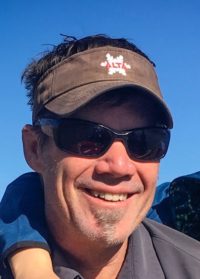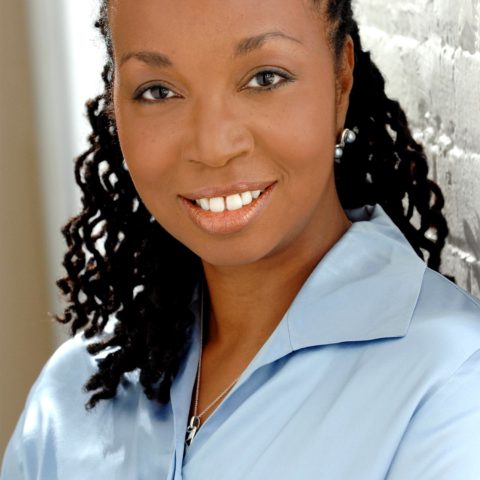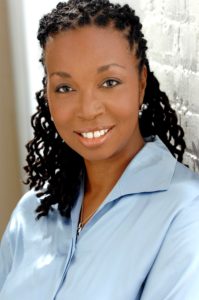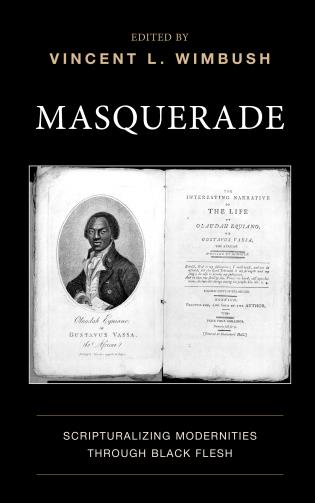
Reflections on the Second Annual Meeting of the ISS – Alonzo Huntsman
March 18, 2017
Reflections from ISS@Charlotte – Lalruatkima
March 18, 2017Reflection on ISS 2017 Annual Meeting – P. Kimberleigh Jordan

A note of self-contextualization: my entrance into the Wimbush world of transdisciplinarity occurred in the  progenitor research project called “African Americans and the Bible.” In that project, I found the beginnings of my own scholarly identity in trans- or interdisciplinary locations. I am now an inter/transdisciplinary scholar working at the intersection of religion, dance studies, and the African diaspora. Surprisingly, my last convening with the Institute for Signifying Scriptures was its debut in Claremont, CA. Between then and now, I finished my PhD in Performance Studies, completed a Ford Foundation postdoc, and joined the faculty of Drew University Theological School.
progenitor research project called “African Americans and the Bible.” In that project, I found the beginnings of my own scholarly identity in trans- or interdisciplinary locations. I am now an inter/transdisciplinary scholar working at the intersection of religion, dance studies, and the African diaspora. Surprisingly, my last convening with the Institute for Signifying Scriptures was its debut in Claremont, CA. Between then and now, I finished my PhD in Performance Studies, completed a Ford Foundation postdoc, and joined the faculty of Drew University Theological School.
BEFORE THE MEETING
As I prepared to travel and immerse myself in the problematics of nation/ state at the 2017 Annual Meeting of the Institute for Signifying Scriptures, there were unfolding in the public sphere, important new “scriptures” for this nation/state. These “scriptures” were not biblical texts, but “scriptures” as provocative assertions of the politics of language and discourses of power in the U.S. (1) Before the ISS Annual Meeting, I felt as if I were in liminal space between President Obama’s farewell speech and flurry of fin de siècle productivity, and the new administration’s attempts to contradict the previous administration and produce an early alt-right blast-off—mostly by way of executive orders. In the days prior to the Meeting, executive orders swirled all around, causing me to grapple with the overfunctioning, yet performative—in an Austinian sense (2)—spoken and textual space which executive orders inhabit.
Seminar attendees were invited to “meet before the meeting” with Hector Amaya’s text Citizenship Excess: Latino/as, Media, and the Nation. Amaya’s text helped me think about the performance of “political capital accumulation” that creates negative space where citizenship does not exist, or where the full performance of citizenship is constrained by racist and xenophobic realities. In contrast, the positive space of excess citizenship for few elites, is marked by the over-distribution of political and legal goods. Reading Amaya’s text in the ongoing news cycles more fully exposed a global stage for colluding discourses of power for elite, non-ethnoracial whites attempting to claim ‘legitimate’ monopolies over nation/ states. (3) As Amaya’s text focused specifically on Latinas/os, the new inhabitant of the White House put a nativist (4) spotlight on his fantastical notions of Mexicans—as ‘illegals,’ ‘bad dudes,’ ‘criminals,’ and ‘bad hombres’—notions deployed to lubricate the birth canal of the neo-fascist state.
THE MEETING
In the midst of this public discursive swirl, I arrived in the Queen City of North Carolina, a state encumbered with its own hegemonic uses of discursive power. Despite the cold weather, the ISS welcome was warm. Dr. Vincent Wimbush’s Friday morning address—itself a transdisciplinary treatise navigating the language spectrum from political analysis to poetry—caused the swirl of language to settle enough to be structured by theoretical analysis. He invited us into a weekend of unobstructed critical conversation in seminar format. Experiencing this structure was refreshing, as it veered from the usual conference dichotomy of active paper presenters and passive paper recipients. Through this invitation, we launched a weekend seminar where everyone’s voice mattered around the table. The address further invited us to consider the nation/state as meaning-maker and meaning-manager, as well as to inquire of ourselves how we participate in and are implicated by it.
In critically assessing the current moment, Dr. Wimbush pointed out that the foundational texts of American “civil religion” serve as its “scriptures” or canonical texts. Unlike the biblical canon, the U.S. canon of civil religion “scriptures” is an open canon—which, in the current environment, is being added to daily through expressions of power played out particularly by way of executive orders. On January 27, 2017, in the middle of the ISS Meeting, the current U.S. president issued the Executive Order Protecting the Nation from Foreign Terrorist Entry into the United States. Added to the canon of civil religion “scriptures” of the nation/state, this executive order decreed that citizens of seven countries in the Islamic Middle East traveling to the U.S. for immigrant or non-immigrant purposes, would be denied entry because the nature of their homelands and/or religion increased the likelihood that they would act as foreign terrorists while in the U.S. This set of events made for a clear, concrete platform from which to analyze scripturalization, power and the nation/state.
We continued on Saturday, even as the newest executive order, informally being called “the Muslim Ban,” was unfolding across U.S. airports. No better coincidence than our session on “The Nation-State as Police/Governor” led by Prof. Halvor Moxnes. He focused again on Amaya’s Citizenship Excess while looking specifically at immigration and human rights from a European perspective. Provocatively, he invited us to review the language used to name people entering countries. While our group brainstormed, I received the first of several text messages from friends inviting me to protest the executive order at airports north and south. In that instance, the informality and immediacy of the text message crashed into the formal language and official structure of the executive order. I was surprised and inspired by the almost instant and robust, yet improvisational response of protestors. Those protestors made a lot of important “noise,” offering another kind of discursive power through their signs, chants, drums, and songs.
How ironic that on the weekend that we gathered to fathom discursive powers of the nation/state, a most hegemonic example would be issued by the White House and a contrasting performance would come to exist from the offended emotions of diverse and grassroots people. Yet, how compelling that the people’s response to the authorized White House document was a kind of improvisational noise that seemed to me to create a notable disruption in the plans of the powerful nation/state.
Prof. Moxnes’ session was helpful in parsing the seminar topic generally, as well as analyzing the particular chaos being wrought in those same hours by the executive order signed by Donald J. Trump, and now added to the canon of U.S. civil religion “scriptures.” It began with these words:
“By the authority vested in me as President by the Constitution and laws of the United States of America, including the Immigration and Nationality Act (INA), […] and to protect the American people from terrorist attacks by foreign nationals admitted to the United States, it is hereby ordered […] (5)
My ‘takeaway’ from this moment is that there are multiple excavations of discourse and power begging to be done. The official, civil religious canonical texts require fathoming; but, of equal (greater?) importance are excavations of discourse and power that may be cacophonous, noisy, and arise out of improvisation of the people. Each sphere of discourse has its own power to examine.
ANOTHER LENS
Dr. Wimbush concluded his address with a reading of James Weldon Johnson’s “Lift Every Voice and Sing” and offered it, among other texts, as another lens for reading nation, politics and ideology. Johnson’s “Lift Every Voice . . .” is a particularly fitting citation for this historical moment, as 2017 marks the centennial of the event known as the Silent Protest Parade. In addition to writing the words to “Lift Every Voice… ,” Johnson, as secretary of the NAACP, ‘choreographed’ this embodied act of resistance in 1917. In the Silent Protest Parade, 10,000 Black people marched silently down New York City’s Fifth Ave. to protest lynching and other racist violence against Black people in the U.S. (6) While the nation/state, then and now, creates excess citizenship for some and restrained or non-existent citizenship for others, bodies confront and resist the powerful discourses of the nation/state. Johnson’s creative and interpretive work as a distinguished Harlem Renaissance performing artist, musician, and political activist offers a performative lens from which to consider present powers—of both official state hegemony and noisy, improvisational, embodied resistance.
AFTER THE MEETING—AT THE AIRPORTS
As I left the 2017 ISS Annual Meeting to fly home, I wondered how my own body would confront, resist, be implicated by, or participate in these discourses of power—produced, on one hand, by the executive administration, and on the other hand, produced in response to the hegemony manifested in the official text. The convening had highly attuned me to consider ways that the language of the newest executive order impacted bodies and souls of human beings—from refugees to protestors.
With the airports being places of disruption during the weekend, I wondered what and whom I would find there? Would there be brown travellers sadly being detained? Hosts of loud protesters? Impatient TSA and airport employees? Would I be allowed to travel freely and cross borders without incident? The Charlotte Holiday Inn was the intellectual staging area for ISS 2017 Annual Meeting. US airports were the contestatory space for language, bodies and power to confront each other anew. All these strands of discursive power swirled around each other on one cold weekend in January.
———————————————-
Notes:
- Vincent L. Wimbush, Director’s Address, Institute for Signifying Scriptures Second Annual Meeting, Charlotte, NC, 27 January 2017.
- See Austin, J. L. How to Do Things with Words. Edited by Marina Sbisa and J. O. Urmson. 2nd ed. Cambridge, MA: Harvard University, 1962.
- Amaya, Hector. Citizenship Excess: Latinas/os, Media, and the Nation. New York: New York University Press, 2013. 3.
- Amaya, 5.
- For the full text of this Executive Order, see https://www.whitehouse.gov/the-press-office/2017/01/27/executive-order-protecting-nation-foreign-terrorist-entry-united-states
- For a photograph of the Silent Protest Parade, see https://www.loc.gov/resource/ds.00894/



